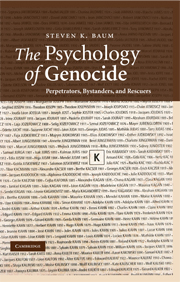6 - Towards an emotionally developed world
Published online by Cambridge University Press: 05 June 2012
Summary
The individual personality … is only valid from the moment when it emerges … It is deeply vulnerable and profoundly dependent on a climate of life and freedom to grow: within family, within community, within nations and within human society as a whole.
Gitta Sereny from Into that DarknessNorth Buxton, Ontario, is a quiet, little enclave located fifty miles north of the Michigan border in the center of the Canadian heartland. The expansive farm fields are punctuated by the occasional sound of a pickup or the sight of a drive shed. There are a few farmhouses, a small church and cemetery; a one-room schoolhouse and a log cabin exhibit.
The exhibit is the Buxton National Historic Site and Museum, a stone's throw from the original Uncle Tom's Cabin. The exhibit is a testament to a time that most would like to forget. On display are human chains, bear-trap devices for humans and vestiges of nineteenth-century North American slavery. North Buxton was the northern terminus of the Underground Railroad, the network that aided runaway slaves to freedom. Between 1820 and 1860, some 20,000 African-Americans are said to have escaped to settle here.
Slavery had been abolished in Canada by 1810, but the decendants of the Underground Railroad know that racism still remains. Gwen Robinson is the 81-year-old custodian and resident expert in nearby Chatham, Ontario.
People think there was no slavery for us in Canada, but there was slavery here under the British – they just got rid of it sooner. […]
- Type
- Chapter
- Information
- The Psychology of GenocidePerpetrators, Bystanders, and Rescuers, pp. 220 - 239Publisher: Cambridge University PressPrint publication year: 2008



